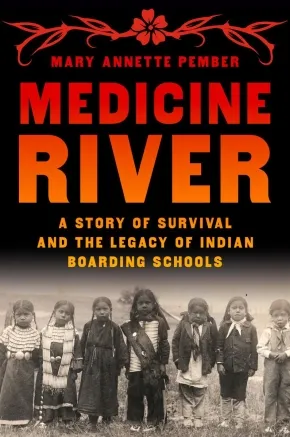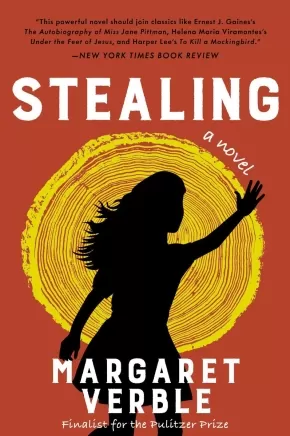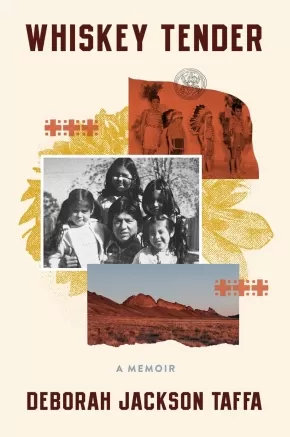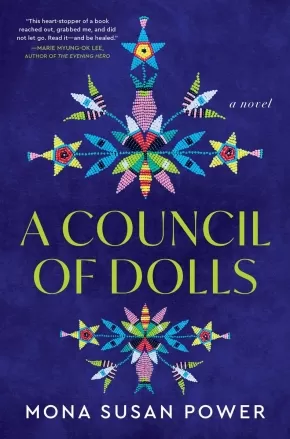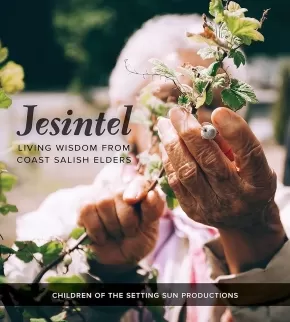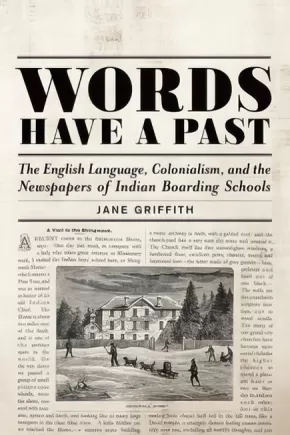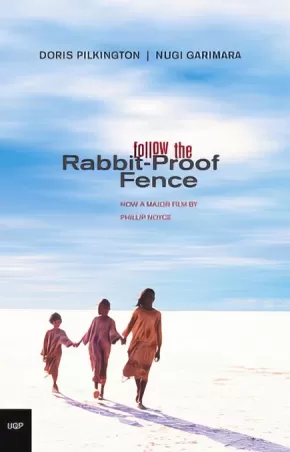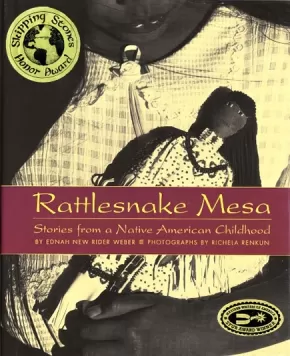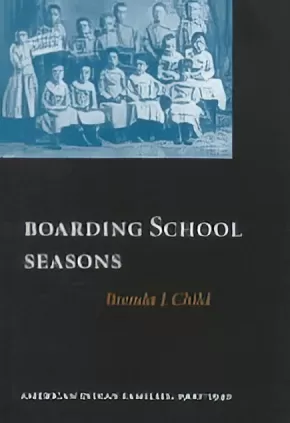International Experiences
Synopsis:
A sweeping and trenchant exploration of the history of Native American boarding schools in the United States, and the legacy of abuse wrought by them in an attempt to destroy Native culture and life.
From the mid-nineteenth century to the late 1930s, tens of thousands of Native children were pulled from their tribal communities to attend boarding schools whose stated aim was to "save the Indian" by way of assimilation. In reality, these boarding schools—sponsored by the U.S. government, but often run by various religious orders with little to no regulation—were a calculated attempt to dismantle tribes by pulling apart Native families. Children were beaten for speaking their Native languages; denied food, clothing, and comfort; and forced to work menial jobs in terrible conditions, all while utterly deprived of love and affection.
Amongst those thousands of children was Ojibwe journalist Mary Pember's mother, who was was sent to a boarding school in northern Wisconsin at age five. The trauma of her experience cast a pall over Pember's own childhood and her relationship with her mother. Highlighting both her mother's experience and the experiences of countless other students at such schools, their families, and their children, Medicine River paints a stark but hopeful portrait of communities still reckoning with the trauma of acculturation, religion, and abuse caused by the state. Through searing interviews and careful reporting, Pember traces the evolution and continued rebirth of Native cultures and nations in relation to the country that has been intent on eradicating them.
Reviews
“A devastating history. . . . Weaving into her narrative her own mother’s experiences . . . Pember explores the psychological ramifications the schools had on subsequent generations. She comes to many quietly ruinous insights about the emotional neglect she herself suffered at the hands of her wounded mother. . . . Concluding with a searing call for accountability, this strikes a chord.” —Publishers Weekly, starred review
“[Pember’s] extensive research illuminates the attempted cultural erasure by government and religious institutions. Her mother’s story provides a heartbreaking, personal focus.” —Booklist
“Elegantly weaving together her mother’s stories, those of other boarding school students, and concise accounts of federal assimilationist policies and common institutional practices, [Pember] provides an informed and unsettling perspective on the schools’ individual and collective impact. . . . A gripping, often harrowing account of the personal and communal toll of cultural genocide.”—Kirkus
"Mary Annette Pember has left it all on the line. Through her, her Ojibwe ancestors speak boldly about how the US government has treated them and every Indigenous nation in these so-called-United States. I have never read a book that has changed me so profoundly. Pember not only points to what has been done, but also offers a way forward. Everyone, absolutely everyone, should read this book." —Javier Zamora, author of Solito
“So much writing about historical trauma casts a vague, impenetrable cloud over its subjects’ lives. But with electric precision and rigorous care, Mary Annette Pember pierces through, illuminating the real mechanisms by which pain has accumulated and reverberated through generations of boarding school survivors and their descendants, as well all the beauty, love, and humor these same lives contain. In showing us how trauma is made, Pember helps us see that it can be unmade. ‘History flows through us,’ she writes, and nowhere has this idea been so well rendered as here, in this stunning, essential book.”—Sierra Crane Murdoch, author of Yellow Bird: Oil, Murder, and a Woman's Search for Justice in Indian Country
“Pember has written a searing exploration of the multi-generational trauma visited upon Native people by the boarding school experience, as well as a brilliant account of Indigenous survivance.” —Michael Witgen, Red Cliff Band of Lake Superior Ojibwe, author of Seeing Red
"I have a shelf full of books on the Indian boarding schools, but nothing quite like this one. Anyone who questions why the U.S. government has finally apologized for these schools and for its brutal assaults on Native children and their families should read Medicine River." —Colin G. Calloway, Professor of History and Native American Studies, Dartmouth College
"Mary Annette Pember reveals that the trauma and rage of surviving the St. Mary’s Catholic Indian Boarding School permeates through the generations. Pember has chronicled a deeply personal and first-person account of the dark legacy of incarceration at a ‘civilized’ boarding school and how the trauma of those youngsters impact their living descendants. Pember tells us that resistance and accountability is attainable, and I believe her. This is an essential read."—Devon Mihesuah, Choctaw Nation of Oklahoma, author of The Bone Picker
"A dauntless and visceral excavation of one family’s residential boarding school legacy. In Medicine River, we can see pain ripple through generations, eclipsed only by Mary Annette Pember's courage and her conviction that, in the search for answers, we can heal."—Anton Treuer, author of Where Wolves Don't Die
Additional Information
304 pages | 6.42" x 9.55" | Hardcover
Synopsis:
A gripping, gut-punch of a novel about a Cherokee child removed from her family and sent to a Christian boarding school in the 1950s—an ambitious, eye-opening reckoning of history and small-town prejudices from Pulitzer Prize finalist Margaret Verble.
Since her mother’s death, Kit Crockett has lived with her grief-stricken father, spending lonely days far out in the country tending the garden, fishing in a local stream, and reading Nancy Drew mysteries from the library bookmobile. One day when Kit discovers a mysterious and beautiful woman has moved in just down the road, she is intrigued.
Kit and her new neighbor Bella become fast friends. Both outsiders, they take comfort in each other’s company. But malice lurks near their quiet bayou and Kit suddenly finds herself at the center of tragic, fatal crime. Soon, Kit is ripped from her home and Cherokee family and sent to Ashley Lordard, a religious boarding school. Along with the other Native students, Kit is stripped of her heritage, force-fed Christian indoctrination, and is sexually abused by the director. But Kit, as strong-willed and shrewd as ever, secretly keeps a journal recounting what she remembers—and revealing just what she has forgotten. Over the course of Stealing, she slowly unravels the truth of how she ended up at the school—and plots a way out.
In swift, sharp, and stunning prose, Margaret Verble spins a powerful coming-of age tale and reaffirms her place as an indelible storyteller and chronicler of history.
Reviews
"Verble tells a memorable and sobering story about injustice, hypocrisy, and resilience. Verble upholds her legacy of indelible Cherokee characters—and weaves a dynamic mystery, too.”— Kirkus Reviews
Additional Information
256 pages | 5.31" x 8" | Paperback
Synopsis:
Reminiscent of the works of Mary Karr and Terese Marie Mailhot, a memoir of family and survival, coming-of-age on and off the reservation, and of the frictions between mainstream American culture and Native inheritance; assimilation and reverence for tradition.
Deborah Jackson Taffa was raised to believe that some sacrifices were necessary to achieve a better life. Her grandparents—citizens of the Quechan Nation and Laguna Pueblo tribe—were sent to Indian boarding schools run by white missionaries, while her parents were encouraged to take part in governmental job training off the reservation. Assimilation meant relocation, but as Taffa matured into adulthood, she began to question the promise handed down by her elders and by American society: that if she gave up her culture, her land, and her traditions, she would not only be accepted, but would be able to achieve the “American Dream.”
Whiskey Tender traces how a mixed tribe native girl—born on the California Yuma reservation and raised in Navajo territory in New Mexico—comes to her own interpretation of identity, despite her parent’s desires for her to transcend the class and “Indian” status of her birth through education, and despite the Quechan tribe’s particular traditions and beliefs regarding oral and recorded histories. Taffa’s childhood memories unspool into meditations on tribal identity, the rampant criminalization of Native men, governmental assimilation policies, the Red Power movement, and the negotiation between belonging and resisting systemic oppression. Pan-Indian, as well as specific tribal histories and myths, blend with stories of a 1970s and 1980s childhood spent on and off the reservation.
Taffa offers a sharp and thought-provoking historical analysis laced with humor and heart. As she reflects on her past and present—the promise of assimilation and the many betrayals her family has suffered, both personal and historical; trauma passed down through generations—she reminds us of how the cultural narratives of her ancestors have been excluded from the central mythologies and structures of the “melting pot” of America, revealing all that is sacrificed for the promise of acceptance.
Reviews
“We have more Native stories now, but we have not heard one like this. Whiskey Tender is unexpected and propulsive, indeed tender, but also bold, and beautifully told, like a drink you didn’t know you were thirsty for. This book, never anything less than mesmerizing, is full of family stories and vital Native history. It pulses and it aches, and it lifts, consistently. It threads together so much truth by the time we are done, what has been woven together equals a kind of completeness from brokenness, and a hope from knowing love and loss and love again by naming it so.” — Tommy Orange, National Bestselling Author of There There
"What makes Taffa’s version exceptional is her visceral prose and sharp attunement to the tragedies of assimilation. This is a must-read."— Publishers Weekly (starred review)
"A warm and propulsive personal history that lucidly traces its Native and colonial legacies to draw a complex and humane portrait of a family and a pivotal political time in U.S. history. Taffa is a gifted raconteur and her memoir should be required reading for everyone in this country." — Melissa Febos, author of Body Work and Girlhood, winner of the National Book Critics Circle Award
Additional Information
304 pages | 6.00" x 9.00" | 6 Photographs | Hardcover
Synopsis:
The long-awaited, profoundly moving, and unforgettable new novel from PEN Award–winning Native American author Mona Susan Power, spanning three generations of Yanktonai Dakota women from the 19th century to the present day.
From the mid-century metropolis of Chicago to the windswept ancestral lands of the Dakota people, to the bleak and brutal Indian boarding schools, A Council of Dolls is the story of three women, told in part through the stories of the dolls they carried….
Sissy, born 1961: Sissy’s relationship with her beautiful and volatile mother is difficult, even dangerous, but her life is also filled with beautiful things, including a new Christmas present, a doll called Ethel. Ethel whispers advice and kindness in Sissy’s ear, and in one especially terrifying moment, maybe even saves Sissy’s life.
Lillian, born 1925: Born in her ancestral lands in a time of terrible change, Lillian clings to her sister, Blanche, and her doll, Mae. When the sisters are forced to attend an “Indian school” far from their home, Blanche refuses to be cowed by the school’s abusive nuns. But when tragedy strikes the sisters, the doll Mae finds her way to defend the girls.
Cora, born 1888: Though she was born into the brutal legacy of the “Indian Wars,” Cora isn’t afraid of the white men who remove her to a school across the country to be “civilized.” When teachers burn her beloved buckskin and beaded doll Winona, Cora discovers that the spirit of Winona may not be entirely lost…
A modern masterpiece, A Council of Dolls is gorgeous, quietly devastating, and ultimately hopeful, shining a light on the echoing damage wrought by Indian boarding schools, and the historical massacres of Indigenous people. With stunning prose, Mona Susan Power weaves a spell of love and healing that comes alive on the page.
Reviews
“A Council of Dolls reached out, grabbed me and did not let go. Power’s ability to make language sing, cry, scream, and laugh illuminates this heartstopper of a book that shines a light into the dark corners of America’s history. I wanted the generational journey I was taking with these unforgettable characters—and their dolls—to never end. Read it--and be healed." — Marie Myung-Ok Lee, author of The Evening Hero
“A Council of Dolls absorbs through the skin, enters the bone, and disperses through the psyche—it perfectly captures the internal roots of the Native experience. Through the lives of three Dakota women, we grapple with the emotional, psychological, and spiritual toll on Indigenous peoples enduring an often brutal system and, moreover, how strength, healing, and love reverberate down each passing generation to dispense hope and resiliency. I cannot more highly recommend Power’s newest masterpiece.” — Oscar Hokeah, PEN/Hemingway award-winning author of Calling for a Blanket Dance
"Mona Susan Power’s new novel is an honor song to the love and strength of Native families and our stories, to our brilliant selves. I couldn’t have known how much I needed the wisdom and offerings of these pages." — Kelli Jo Ford, author of Crooked Hallelujah
“This tender and magical novel will stay with me for a long time. Mona Susan Power writes with dazzling empathy. The result is a heart-rending and many-layered narrative, a captivating story which is also a thrilling testimonial to the power of stories.” — Margot Livesey, author of The Boy in the Field
"A resplendent novel about the spirited lives of three inspiring women who endure significant change and hardship. Each story so deeply compelling I wanted to read quickly but was magnetized by the transformative power of each voice. A mighty, dazzling whirlwind of storytelling. These stories lift from the page. Prepare to stay up all night. A Council of Dolls is mesmerizing. Take a deep breath! Mona Susan Power can peer into darkness and transform it." — Debra Magpie Earling — Debra Magpie Earling
“A work of exquisite beauty and courageous truth-telling, and an unforgettable homage to ancestral suffering and strength.”
— Sheila O’Connor, author of Evidence of V
“A talent like Susan Power comes along once in a lifetime, and lucky for us she's arrived. Here is a debut so stunning, so extraordinary in its depth and passion, you will swear there's a miracle on every page.” — Alice Hoffman, on The Grass Dancer
"This book is well-written. It includes elements of historical fiction and a bit of real life horror. The role of the dolls in these women's lives was the most thought-provoking aspect of the novel. It added a bit of a fantasy element to the story. I wondered what the author's intention was. The dolls seem to be symbolic in addition to invisible friends for the girls. They were also silent, supposedly inanimate witnesses to what the young women experienced. The parts of the story told from the dolls' POV were especially intriguing. I enjoyed the section about how the Shirley Temple doll was made, and the doll was presented as self-aware. The author wove mystery and symbolism around the dolls without being blatant. She left readers room to make their own interpretations. I really enjoyed and appreciated that. The book is also full of interesting philosophical statements." - Claudia, Goodreads Review
Additional Information
304 pages | 6.00" x 9.00" | Hardcover
Synopsis:
“We need to learn and grow together, and if we are able to do this, we will create harmony,” counsels Tom Sampson, an elder of Tsartlip First Nation in British Columbia.
Dynamic and diverse, Coast Salish culture is bound together by shared values and relations that generate a resilient worldview. Jesintel—"to learn and grow together"—characterizes the spirit of this book, which brings the cultural teachings of nineteen elders to new generations.
Featuring interviews that share powerful experiences and stories, Jesintel illuminates the importance of ethical reciprocal relationships and the interconnectedness of places, land, water, and the spirit within all things. Elders offer their perspectives on language revitalization, Coast Salish family values and naming practices, salmon, sovereignty, canoe racing, and storytelling. They also share traumatic memories, including of their boarding school experiences and the epidemics that ravished their communities. Jesintel highlights the importance of maintaining relations and traditions in the face of ongoing struggles. Collaboration is at the heart of this work and informs how the editors and community came together to honor the boundless relations of Coast Salish people and their territories.
Elders Interviewed:
Tom Sampson (Tsartlip First Nation)
Virginia Cross (Muckleshoot Tribe)
Ernestine Gensaw (Lummi Nation)
Steve and Gwen Point (Stó:lō Nation)
Gene and Wendy Harry (Malahat Nation)
Claude Wilbur (Swinomish Tribe)
Richard Solomon (Lummi Nation)
Elaine Grinell (Jamestown S’Klallam Tribe)
Arvid Charlie (Cowichan Nation)
Amy George (Tsleil-Waututh Nation)
Nancy Shippentower (Nisqually Tribe)
Nolan Charles (Musqueam Indian Band)
Andy de los Angeles (Snoqualmie Tribe)
Jewell James (Lummi Nation)
Kenny Moses Sr. Family (Tulalip Tribal Nation)
Ramona Morris (Lummi Nation)
Reviews
"A beautiful sharing of thriving Coast Salish communities. Indigenous elders, cultures, and languages have so much precious wisdom to share, and Jesintel celebrates these through storytelling and photos. It is a generous gift to anyone who wants to better understand the resilience of Indigenous communities."- Michelle M. Jacob (Yakama), author of The Auntie Way: Stories Celebrating Kindness, Fierceness, and Creativity
Educator Information
Nineteen elders from Coast Salish communities in the Pacific Northwest and British Columbia offer a portrait of their perspectives on language, revitalization, and Coast Salish family values. Topics include naming practices, salmon, canoe journeys and storytelling.
Additional Information
224 pages | 9.00" x 10.00" | 144 colour illustrations | 1 map | Paperback
Synopsis:
For nearly 100 years, Indian boarding schools in Canada and the US produced newspapers read by white settlers, government officials, and Indigenous parents. These newspapers were used as a settler colonial tool, yet within these tightly controlled narratives there also existed sites of resistance. This book traces colonial narratives of language, time, and place from the nineteenth-century to the present day, post-Truth and Reconciliation Commission.
Educator Information
1. Bury the Lede: Introduction
2. Printer’s Devil: The Trade of Newspapers
3. Indigenous Languages Did Not Disappear: English Language Instruction
4. "Getting Indian Words": Representations of Indigenous Languages
5. Ahead by a Century: Time on Paper
6. Anachronism: Reading the Nineteenth Century Today
7. Layout: Space, Place, and Land
8. Concluding Thoughts
Additional Information
256 pages | 6.00" x 9.00"
Synopsis:
This extraordinary story of courage and faith is based on the actual experiences of three girls who fled from the repressive life of Moore River Native Settlement, following along the rabbit-proof fence back to their homelands. Assimilationist policy dictated that these girls be taken from their kin and their homes in order to be made white. Settlement life was unbearable with its chains and padlocks, barred windows, hard cold beds, and horrible food. Solitary confinement was doled out as regular punishment. The girls were not even allowed to speak their language. Of all the journeys made since white people set foot on Australian soil, the journey made by these girls born of Aboriginal mothers and white fathers speaks something to everyone.
Educator Information
Grades 11-12 English First Peoples Resource.
Additional Information
160 pages | 5.00" x 7.75"
Synopsis:
After her beloved Grandmother dies, EdNah, a seven-year-old Pawnee girl, goes to live with a father she hardly knows on a Navajo reservation miles away. Heartbroken but resilient, she begins to create a new life for herself in this unfamiliar place.
Just as EdNah starts to feel at home in her new surroundings, she is sent away to a strict government-run Indian school. With her world turned upside down once again, EdNah must learn to rely on herself and her newfound community of friends.
Told in the unconventional voice of a seasoned storyteller, Rattlesnake Mesa is a true account of a girl coming-of-age during a complex time in America’s past. Both heartbreaking and humorous, you will be moved to tears and laughter as you experience EdNah’s spirited celebration of life as a healing.
Synopsis:
Boarding School Seasons offers a revealing look at the strong emotional history of Indian boarding school experiences in the first half of the twentieth century. At the heart of this book are the hundreds of letters written by parents, children, and school officials at Haskell Institute in Kansas and the Flandreau School in South Dakota. These revealing letters show how profoundly entire families were affected by their experiences.
Children, who often attended schools at great distances from their communities, suffered from homesickness, and their parents from loneliness. Parents worried continually about the emotional and physical health and the academic progress of their children. Families clashed repeatedly with school officials over rampant illnesses and deplorable living conditions and devised strategies to circumvent severely limiting visitation rules. Family intimacy was threatened by the school's suppression of traditional languages and Native cultural practices.
Although boarding schools were a threat to family life, profound changes occurred in the boarding school experiences as families turned to these institutions for relief during the Depression, when poverty and the loss of traditional seasonal economics proved a greater threat. Boarding School Seasons provides a multifaceted look at the aspirations and struggles of real people.

